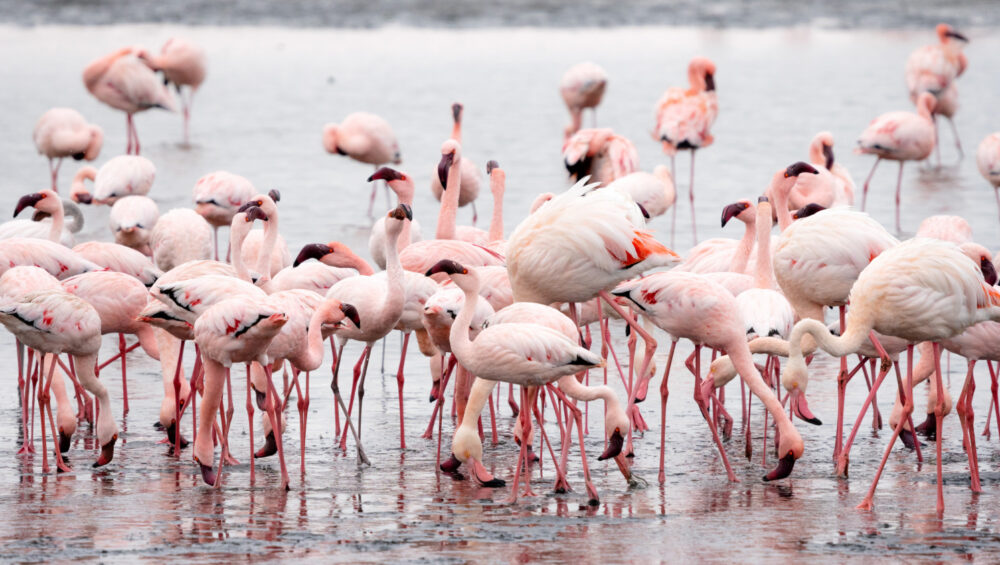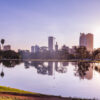Lake Nakuru National Park is a protected area in central Kenya, known for its stunning lake and diverse wildlife. Here are key features and information about Lake Nakuru National Park:
- Location:
- Lake Nakuru National Park is located in the Rift Valley region of Kenya, approximately 170 kilometers northwest of Nairobi. The park surrounds Lake Nakuru, a shallow alkaline lake.
- Establishment:
- The park was established in 1961 and was designated as a national park to protect the lake and its surrounding ecosystem. It was later expanded to include the adjacent Lake Nakuru catchment area.
- Landscape and Habitat:
- The park is characterized by the alkaline Lake Nakuru, surrounded by wooded and bushy grassland. There are areas of acacia forests and rocky escarpments. The park’s landscape provides a habitat for a variety of wildlife.
- Lake Nakuru:
- Lake Nakuru is one of the Rift Valley soda lakes and is known for its vibrant pink flamingo population. The lake’s alkaline waters support the growth of cyanobacteria, which attracts large numbers of flamingos, creating a spectacular sight. However, the flamingo population can vary based on factors such as water levels and food availability.
- Flora and Fauna:
- Lake Nakuru National Park is home to a wide variety of wildlife, including both white and black rhinoceros, lions, leopards, giraffes, buffalos, zebras, and numerous species of antelope. The park is also a haven for birdwatchers, with over 400 bird species recorded, including pelicans, cormorants, and various waterfowl.
- Rhino Sanctuary:
- The park is particularly known for its successful rhinoceros conservation efforts. It hosts a rhino sanctuary where both black and white rhinos are protected and can be observed by visitors.
- Activities:
- Popular activities in Lake Nakuru National Park include game drives, bird watching, and nature walks. The viewpoints around the park offer panoramic views of the lake and surrounding landscapes.
- Conservation Challenges:
- The park, like many wildlife areas, faces challenges such as habitat loss, water pollution, and human-wildlife conflict. Conservation efforts are ongoing to address these issues and ensure the long-term sustainability of the park’s ecosystem.
- Accessibility:
- Lake Nakuru National Park is easily accessible by road from Nairobi, making it a popular destination for day trips or longer safaris. The park’s proximity to the capital city makes it a convenient choice for both local and international visitors.
Lake Nakuru National Park is a unique and ecologically significant area, offering visitors the chance to witness a diverse array of wildlife against the backdrop of the stunning Lake Nakuru.





